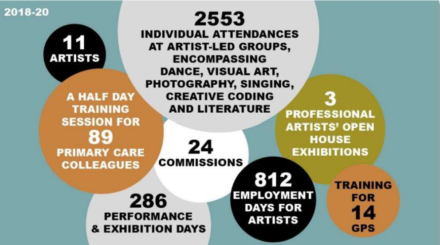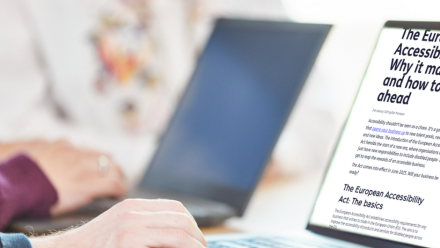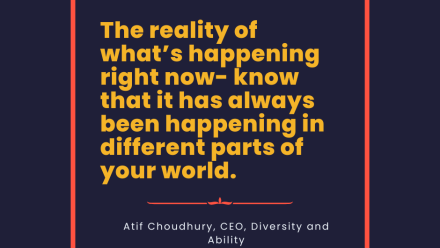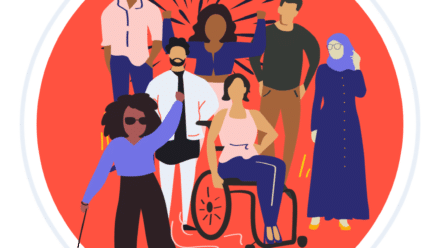Culture, Creativity & COVID-19
10th March 2021 by Raphaele von Koettlitz
Our wonderful partners at The Robin Hood Health Foundation, The Old Market and Creative Future have been beavering away on The HERA Programme (Healing Expressive and Recovery Arts Project) throughout the pandemic, to provide creative workshops and public-facing arts activities for people with ongoing health concerns and complex needs in NHS primary care.
The entire programme of multi-artform creative workshops and professional training were rapidly transitioned online at the start of the pandemic. D&A along with AbilityNet provided support to those facing challenges around getting online and accessing the programme from digital platforms. One of the main blocks the HERA partnership has witnessed throughout this period are the impacts of digital inequity, so this outreach was critical. It became crystal clear that access to technology and digital literacy skills have very concrete impacts in terms of participation and inclusion. It would be so beneficial if free hardware and software were made available to vulnerable patients on low incomes, to ensure continued access to meaningful care and connections.
Why mix creativity and health?
For more context about the HERA programme, you can read the story on this dedicated page. But to quickly summarise its reason for being, some of the key aims of the HERA programme include:
- Raise public awareness of the social determinants of health, including for very vulnerable people, across the whole life span
- Change primary care culture: person-centred and values-based – creativity is a basic right, regardless of health status, and a healthy life includes creativity
- Create a new resource for clinical and social care colleagues
- Build links and referral pathways using community and creativity
- Enable people to better manage their own health & wellbeing, to support each other, and to access wider creative resources
- Support improved arts & health practice – training, clinical supervision, professional opportunities, networking
- Build social connections, skills and confidence for individuals
- Reduce use of GP appointments for non-medical concerns (nationally around 1 in 4 appointments)
What we’ve been up to
To give you a flavour of one of the workshops, Dan Blomfield talks about his work facilitating HERA’s photography workshops (which are currently online) in the talk he gave for the city’s Arts, Health & Wellbeing conference ‘More Culture, Less Medicine‘.
https://youtu.be/WHJJf5Brbd4
The impact
From the overwhelmingly positive participant feedback it is clear that HERA is hitting many of its targets outlined above. For example one participant said,
“I really enjoyed the group, and it was great to have some structured me time each week … In an indirect way we shared our experiences of lockdown, which I found a supportive process. I also learned new skills and became more confident in my abilities using a camera and taking photographs”
Evaluation data has also shown that demand for GP appointments tends to be reduced in the range 27% to 41% when someone attends three or more HERA sessions. A graphic summary of some of the key achievements from 2018-20 is below:

Graphic summary of key outcomes 2018-2020
HERA is reaching more and more people through wider avenues; no longer just accepting GP referrals, the programme is working with new partners such as Voices in Exile, a refugee organisation, to support more people through creative expression.
Upcoming events and opportunities
Support network for freelance arts & health practitioners
To widen support, HERA partners are setting up a support network for freelance arts & health practitioners working in this field.
The network aims to:
- Build connections in and for the arts & health sector
- Provide peer support opportunities
- Offer regular updates about useful information & resources, work & training opportunities & collaborations, and national & international perspectives. The first meeting is via Zoom on Tuesday 23 March, from 10 am – 12 pm. This will be hosted by Jane McMorrow (Director of Creative Future) & Emma Drew (Robin Hood Health Foundation) and will provide an opportunity to present the ideas behind the network.
LightformLAB
The Old Market have a really exciting opportunity for folks interested in gaining valuable experience using Lightform.
Projection-Mapping is now a core design tool for large scale theatre and events production. The technology enables storytellers to morph design concepts to live performance and, when done best, creates the illusion of movement and life in static objects. But given the complexity of the processes and the large delivery costs, it is a tool not easily available to artists working at the small-mid scale.
A new product is now available that drastically reduced the pipeline and cost of delivering mapped visuals in performance. The Old Market is one of the first organisations in the UK to have access to these tools and is inviting HERA Partnership associate artists to come and explore their potential.
What’s on offer:
- Exploration workshops, led by artist Thomas Buckley (Video artist, RSC & Magic Leap Fellow)
- Open Call micro commissions, designed to pay for artist time to explore (4 funds of £500 each)
- The opportunity to showcase a piece of work at The Old Market when it reopens in 2021
- Production support, mentoring during the process and an open, sharing workspace so we can learn together
You can find out more about this exciting opportunity over on the LightformLAB page.


